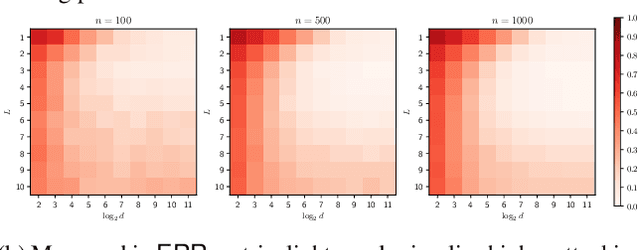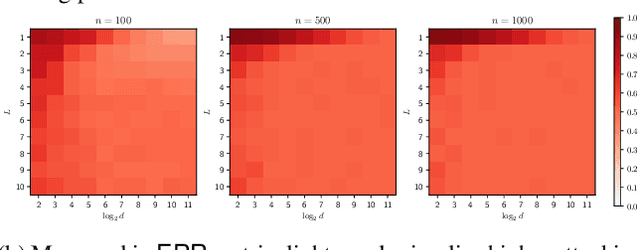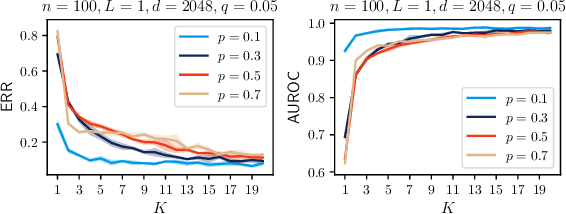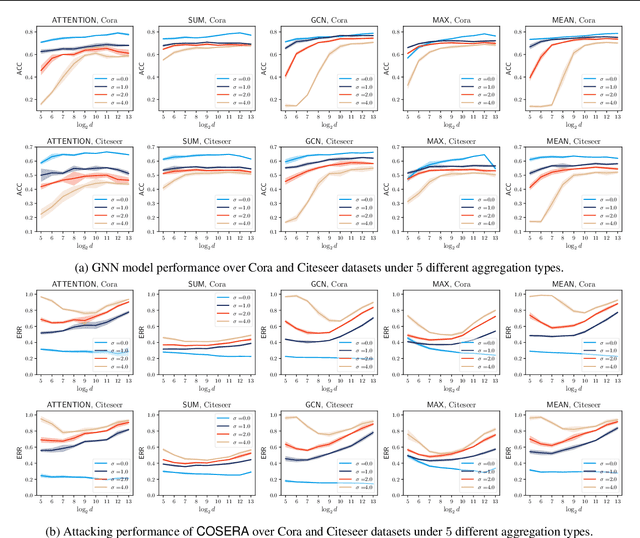Qiying Pan
Shanghai Jiao Tong University
On provable privacy vulnerabilities of graph representations
Feb 06, 2024



Abstract:Graph representation learning (GRL) is critical for extracting insights from complex network structures, but it also raises security concerns due to potential privacy vulnerabilities in these representations. This paper investigates the structural vulnerabilities in graph neural models where sensitive topological information can be inferred through edge reconstruction attacks. Our research primarily addresses the theoretical underpinnings of cosine-similarity-based edge reconstruction attacks (COSERA), providing theoretical and empirical evidence that such attacks can perfectly reconstruct sparse Erdos Renyi graphs with independent random features as graph size increases. Conversely, we establish that sparsity is a critical factor for COSERA's effectiveness, as demonstrated through analysis and experiments on stochastic block models. Finally, we explore the resilience of (provably) private graph representations produced via noisy aggregation (NAG) mechanism against COSERA. We empirically delineate instances wherein COSERA demonstrates both efficacy and deficiency in its capacity to function as an instrument for elucidating the trade-off between privacy and utility.
FedGKD: Unleashing the Power of Collaboration in Federated Graph Neural Networks
Sep 21, 2023



Abstract:Federated training of Graph Neural Networks (GNN) has become popular in recent years due to its ability to perform graph-related tasks under data isolation scenarios while preserving data privacy. However, graph heterogeneity issues in federated GNN systems continue to pose challenges. Existing frameworks address the problem by representing local tasks using different statistics and relating them through a simple aggregation mechanism. However, these approaches suffer from limited efficiency from two aspects: low quality of task-relatedness quantification and inefficacy of exploiting the collaboration structure. To address these issues, we propose FedGKD, a novel federated GNN framework that utilizes a novel client-side graph dataset distillation method to extract task features that better describe task-relatedness, and introduces a novel server-side aggregation mechanism that is aware of the global collaboration structure. We conduct extensive experiments on six real-world datasets of different scales, demonstrating our framework's outperformance.
Lumos: Heterogeneity-aware Federated Graph Learning over Decentralized Devices
Mar 01, 2023Abstract:Graph neural networks (GNN) have been widely deployed in real-world networked applications and systems due to their capability to handle graph-structured data. However, the growing awareness of data privacy severely challenges the traditional centralized model training paradigm, where a server holds all the graph information. Federated learning is an emerging collaborative computing paradigm that allows model training without data centralization. Existing federated GNN studies mainly focus on systems where clients hold distinctive graphs or sub-graphs. The practical node-level federated situation, where each client is only aware of its direct neighbors, has yet to be studied. In this paper, we propose the first federated GNN framework called Lumos that supports supervised and unsupervised learning with feature and degree protection on node-level federated graphs. We first design a tree constructor to improve the representation capability given the limited structural information. We further present a Monte Carlo Markov Chain-based algorithm to mitigate the workload imbalance caused by degree heterogeneity with theoretically-guaranteed performance. Based on the constructed tree for each client, a decentralized tree-based GNN trainer is proposed to support versatile training. Extensive experiments demonstrate that Lumos outperforms the baseline with significantly higher accuracy and greatly reduced communication cost and training time.
FedWalk: Communication Efficient Federated Unsupervised Node Embedding with Differential Privacy
Jun 01, 2022



Abstract:Node embedding aims to map nodes in the complex graph into low-dimensional representations. The real-world large-scale graphs and difficulties of labeling motivate wide studies of unsupervised node embedding problems. Nevertheless, previous effort mostly operates in a centralized setting where a complete graph is given. With the growing awareness of data privacy, data holders who are only aware of one vertex and its neighbours demand greater privacy protection. In this paper, we introduce FedWalk, a random-walk-based unsupervised node embedding algorithm that operates in such a node-level visibility graph with raw graph information remaining locally. FedWalk is designed to offer centralized competitive graph representation capability with data privacy protection and great communication efficiency. FedWalk instantiates the prevalent federated paradigm and contains three modules. We first design a hierarchical clustering tree (HCT) constructor to extract the structural feature of each node. A dynamic time warping algorithm seamlessly handles the structural heterogeneity across different nodes. Based on the constructed HCT, we then design a random walk generator, wherein a sequence encoder is designed to preserve privacy and a two-hop neighbor predictor is designed to save communication cost. The generated random walks are then used to update node embedding based on a SkipGram model. Extensive experiments on two large graphs demonstrate that Fed-Walk achieves competitive representativeness as a centralized node embedding algorithm does with only up to 1.8% Micro-F1 score and 4.4% Marco-F1 score loss while reducing about 6.7 times of inter-device communication per walk.
 Add to Chrome
Add to Chrome Add to Firefox
Add to Firefox Add to Edge
Add to Edge